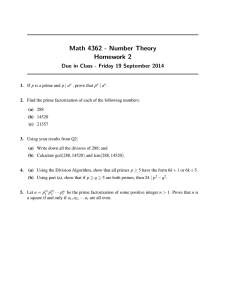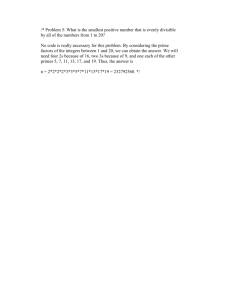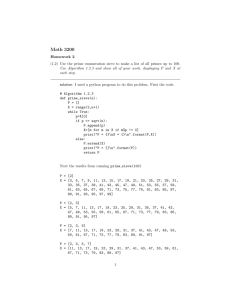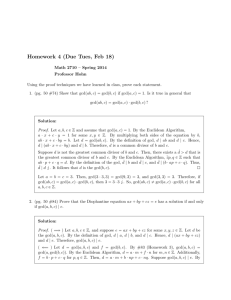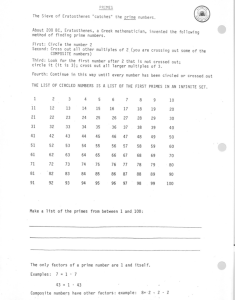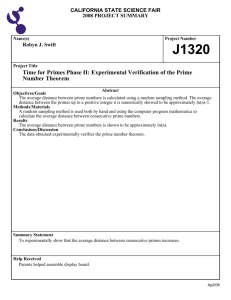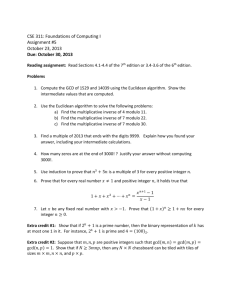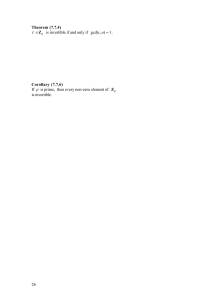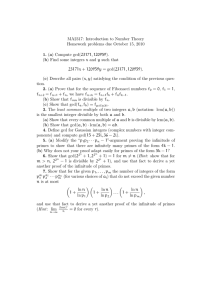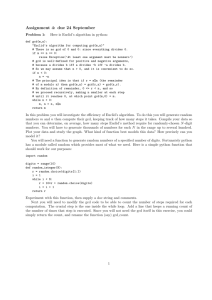Python Exericses
advertisement
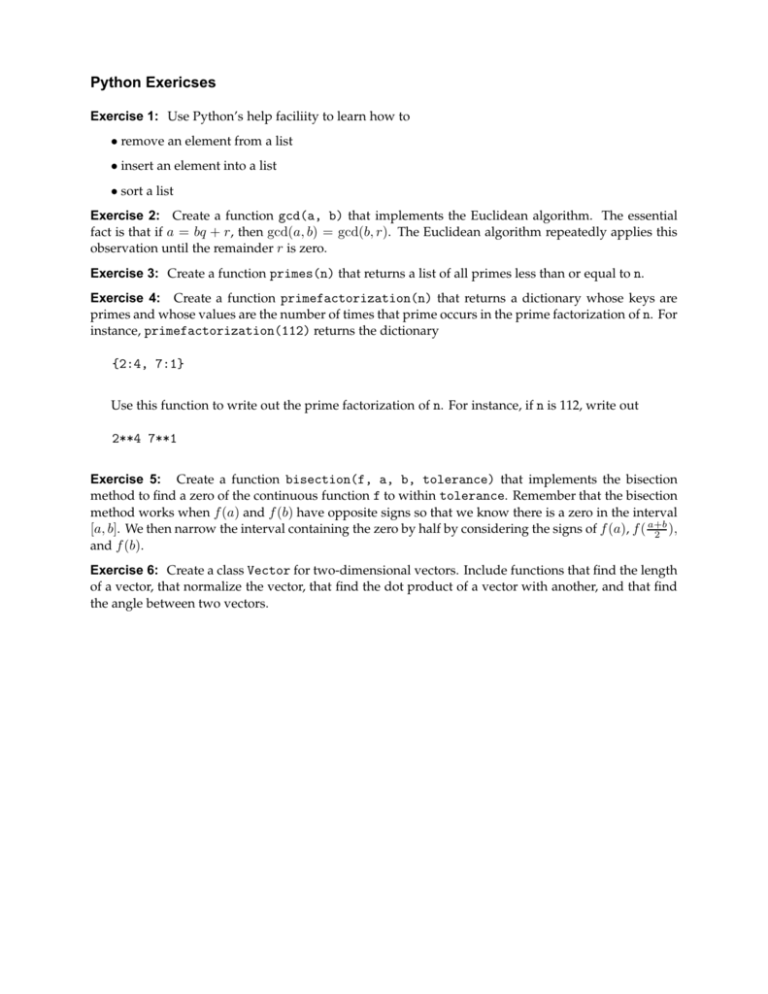
Python Exericses
Exercise 1: Use Python’s help faciliity to learn how to
• remove an element from a list
• insert an element into a list
• sort a list
Exercise 2: Create a function gcd(a, b) that implements the Euclidean algorithm. The essential
fact is that if a = bq + r , then gcd(a, b) = gcd(b, r). The Euclidean algorithm repeatedly applies this
observation until the remainder r is zero.
Exercise 3: Create a function primes(n) that returns a list of all primes less than or equal to n.
Exercise 4: Create a function primefactorization(n) that returns a dictionary whose keys are
primes and whose values are the number of times that prime occurs in the prime factorization of n. For
instance, primefactorization(112) returns the dictionary
{2:4, 7:1}
Use this function to write out the prime factorization of n. For instance, if n is 112, write out
2**4 7**1
Exercise 5: Create a function bisection(f, a, b, tolerance) that implements the bisection
method to find a zero of the continuous function f to within tolerance. Remember that the bisection
method works when f (a) and f (b) have opposite signs so that we know there is a zero in the interval
),
[a, b]. We then narrow the interval containing the zero by half by considering the signs of f (a), f ( a+b
2
and f (b).
Exercise 6: Create a class Vector for two-dimensional vectors. Include functions that find the length
of a vector, that normalize the vector, that find the dot product of a vector with another, and that find
the angle between two vectors.
